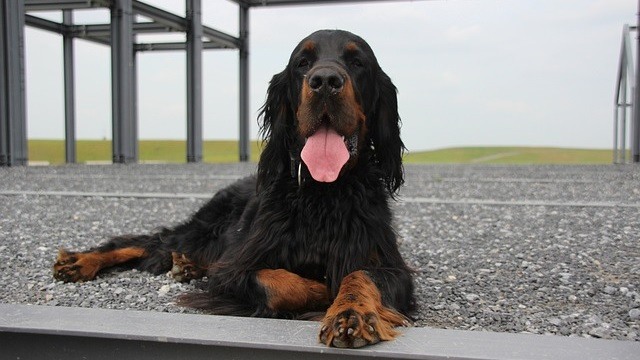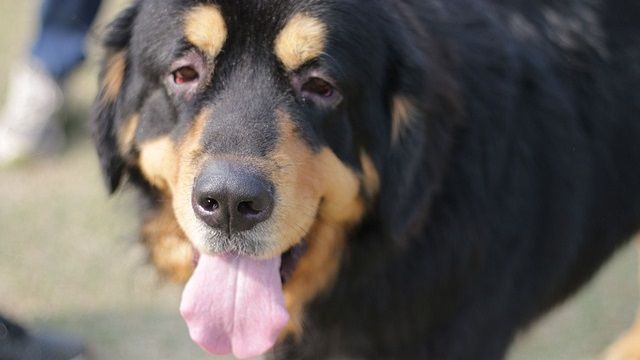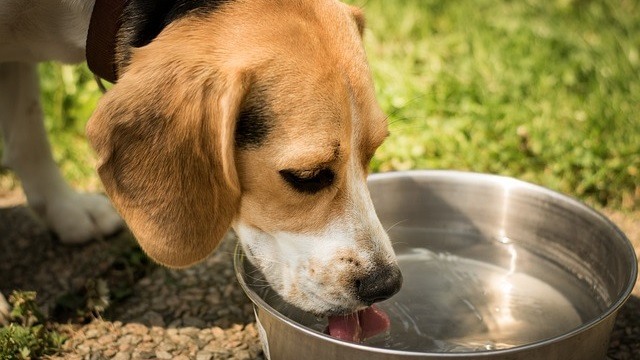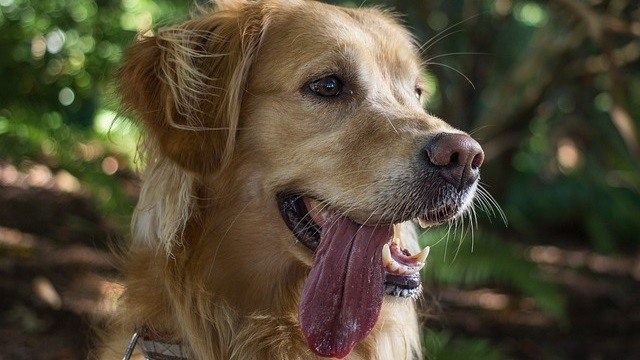Is Your Dog Panting? Here’s What It Means and What You Can Do to Help
Is your dog panting excessively? Understanding the reasons behind it can help you identify potential health issues and take action to help.
- Normal panting helps dogs regulate body temperature but excessive panting may indicate serious health issues.
- Seek veterinary help if panting is heavy, occurs at rest, or is accompanied by other concerning symptoms.
- Common causes of excessive panting include heatstroke, respiratory issues, pain, anxiety, and obesity.
- Provide first aid by cooling your dog and ensuring access to water while monitoring their condition closely.
Normal vs. Abnormal Dog Panting: How to Tell the Difference

Panting is a normal physiological response for dogs, especially after exercise or in hot weather. However, excessive panting can be a sign of an underlying health problem.
Normal panting occurs when a dog is trying to regulate its body temperature. Dogs don’t have sweat glands like humans, so panting is their way of cooling off. Normal panting is typically characterized by open-mouth breathing, with a slightly parted tongue and a moderate amount of saliva.
Abnormal panting, on the other hand, is excessive or uncontrollable panting that can occur even when your dog is at rest. Abnormal panting may be a sign of an underlying health issue, many of which can be extremely serious and even potentially fatal.
Here are some specific situations when you should seek help for excessive panting:
- Your dog is panting heavily and rapidly for an extended period of time, even when they’re not active or hot.
- Any panting or abnormal breathing accompanied by other symptoms, such as coughing, lethargy, or abdominal bloating.
- Your dog’s panting is occurring at unusual times, such as during the night or while resting.
- Panting that is triggered by a specific event, such as exercise or excitement, but is more intense or prolonged than usual.
If you suspect that your dog’s panting is abnormal, it’s important to take them to a veterinarian for evaluation. The vet can perform a physical exam, run diagnostic tests, and determine the underlying cause of your dog’s panting.
Common Causes Of Excessive Panting In Dogs

As a pet owner, it is important to be aware of the common causes of excessive panting in dogs. Panting is one of the primary symptoms of heatstroke. It’s a potentially life-threatening condition that can occur when a dog’s body temperature rises to dangerous levels. Other symptoms of heatstroke are dehydration, lethargy, and collapse. If you suspect your dog has heatstroke, seek veterinary attention immediately.
Dogs with respiratory problems, such as pneumonia or bronchitis, may also pant excessively to try to get more oxygen into their lungs. Other signs of respiratory distress may include wheezing, coughing, and a bluish tint to the gums and tongue. Again, if you suspect that your dog is panting because of a respiratory problem, it is vital to seek veterinary help straight away.
Apart from heatstroke and respiratory problems, some other health issues can cause excessive panting in dogs. For example, dogs in pain may pant as a way of coping with discomfort, and anxiety and stress can also lead to excessive panting in dogs. Obesity is another leading cause of excessive panting in dogs.
Healthy dogs will pant during exercise. It’s a way of regulating their body temperature after a vigorous play session or walk. This is normal and should subside after a few minutes of rest. Excitement and happiness can also cause dogs to pant. For example, your dog may pant when you come home from work or when they spot their favorite toy!
How To Help A Dog That Is Panting Excessively

If you suspect that your dog is experiencing heatstroke or another serious medical condition, it’s important to seek veterinary advice immediately. However, there are several steps you can take to provide first aid for your dog in the meantime.
The first thing you should do is immediately stop any exercise and move your dog to a cool, shaded area or an air-conditioned room. Make sure your dog has access to clean, fresh water, and gently dampen the hair around your dog’s ears and paws with a wet sponge. Open windows or use a fan to circulate air around your dog and cool them down.
It’s important to monitor your dog’s condition closely during this time. If the panting doesn’t start to improve within a few minutes or if they seem to be getting worse, seek veterinary attention immediately.
It’s worth noting that some underlying medical conditions, such as respiratory distress, obesity, or pain, may require different first aid measures. If you’re unsure what’s causing your dog’s excessive panting or if you’re concerned about their condition, contact your veterinarian for advice.
if you notice any unusual or concerning symptoms, it is always best to get your precious pooch checked out. Maven’s vet team is here to lend you a hand with whatever you need! Whether you have an overweight dog that pants excessively or you just want to make sure your buddy’s panting behavior is normal, we’re here for you!
Maven Pet focuses on improving the quality of life of our pets with technology, using artificial intelligence (AI) to enable proactive pet care. By accurately collecting and monitoring pet data 24/7 and flagging any irregularities, Maven Pet empowers pet parents and veterinarians to stay ahead of potential health issues, ensuring the well-being and longevity of our beloved companions.




